
Business insurance report: 92% are covered, only 13% feel completely prepared to face risks
This story was produced by NEXT and reviewed and distributed by Stacker.
Business insurance report: 92% are covered, only 13% feel completely prepared to face risks
More insurance coverage should mean more confidence for small business owners, right?
Not exactly—at least, not yet.
According to a NEXT nationwide survey of 500 small business owners, insurance adoption is up across the board but confidence hasn't caught up.
Despite more business owners having small business insurance coverage, many still feel unprepared to face real-world risks, and a majority say they find insurance confusing.
This year's survey, a follow-up to NEXT's 2023 industry pulse check, sheds light on how small business owners are thinking about and managing risk. The results reveal a mix of progress but also persistent gaps, especially when it comes to understanding coverage and choosing the right policies for unique business needs.
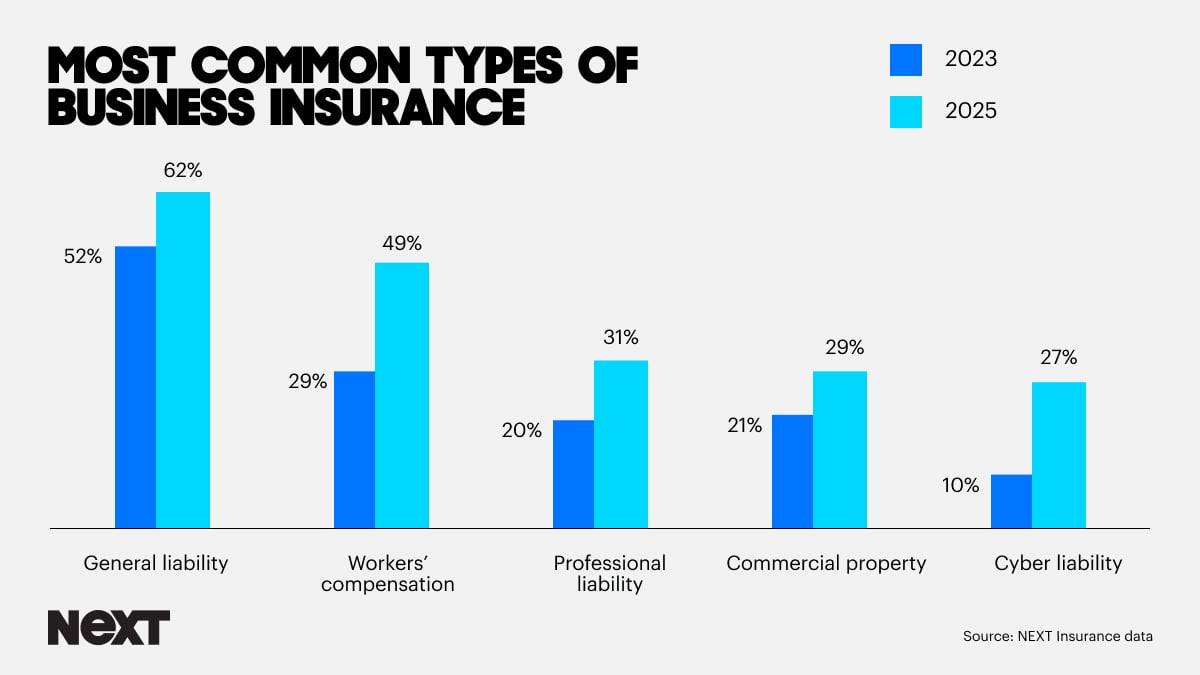
92% of small businesses have business insurance
Almost all of the small businesses surveyed (92%) said they are investing in small business insurance—a 20% increase compared to NEXT's last survey in 2023.
The majority of small businesses (62% in 2025 versus 51% in 2023) have general liability insurance, one of the most common types of business insurance. And with the exception of BOP insurance (Business Owners' Policy), we see increased investment in business insurance across the board.
Some of the most dramatic increases include:
- Workers' compensation insurance, which can help cover the costs of employees with work-related injuries and illnesses, also had a big jump: from 29% to 49%.
- Professional liability insurance, which is coverage that can help with the costs of professional mistakes, grew from 20% to 31%.
- Commercial property insurance, which can help protect business equipment, inventory and structures, saw an increase of 58%.
- Cyber liability insurance, which can help protect against cyber attacks and some hardware failures, saw the biggest growth in adoption, nearly tripling, from 10% in 2023 to 27% in 2025.
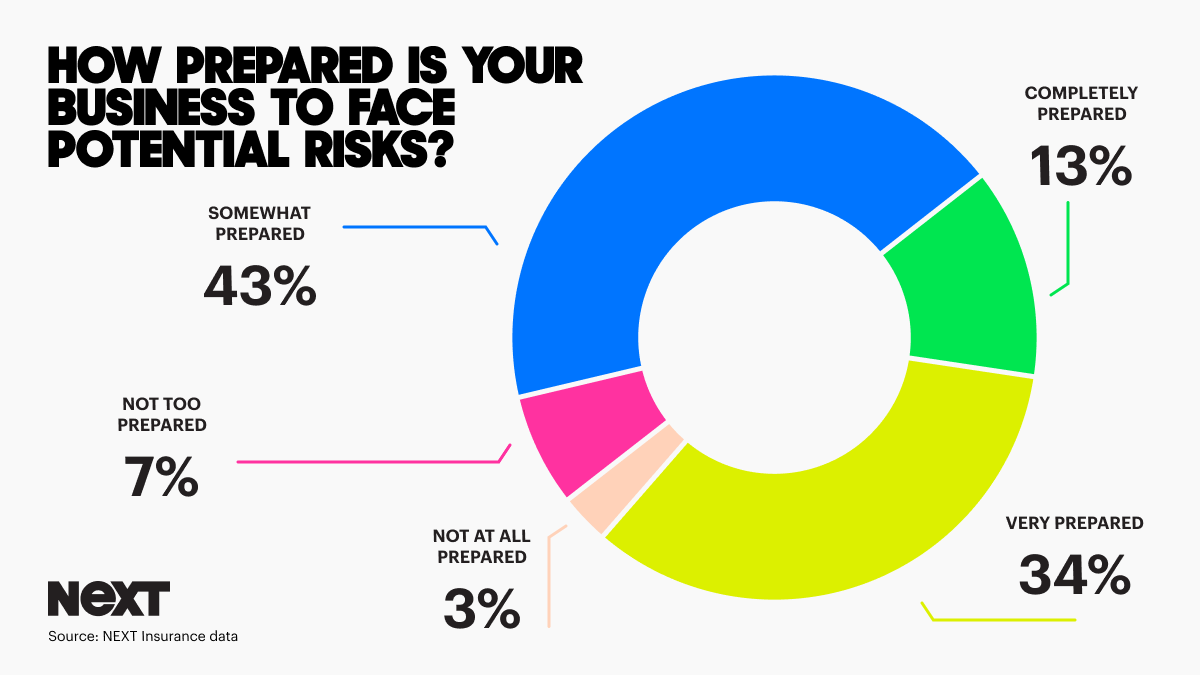
Only 13% of small businesses with coverage feel fully prepared for risk
The amount of businesses with coverage has increased, but just 13% of small business owners say they feel completely prepared to face potential threats like professional mistakes or workplace injuries.
Overall, 87% of business owners feel less than fully prepared to face risks to their business.
Less than half (47%) say they are "very" or "completely" prepared. While this is an improvement from 34% in 2023, there's still a significant confidence gap for people buying policies for their business.
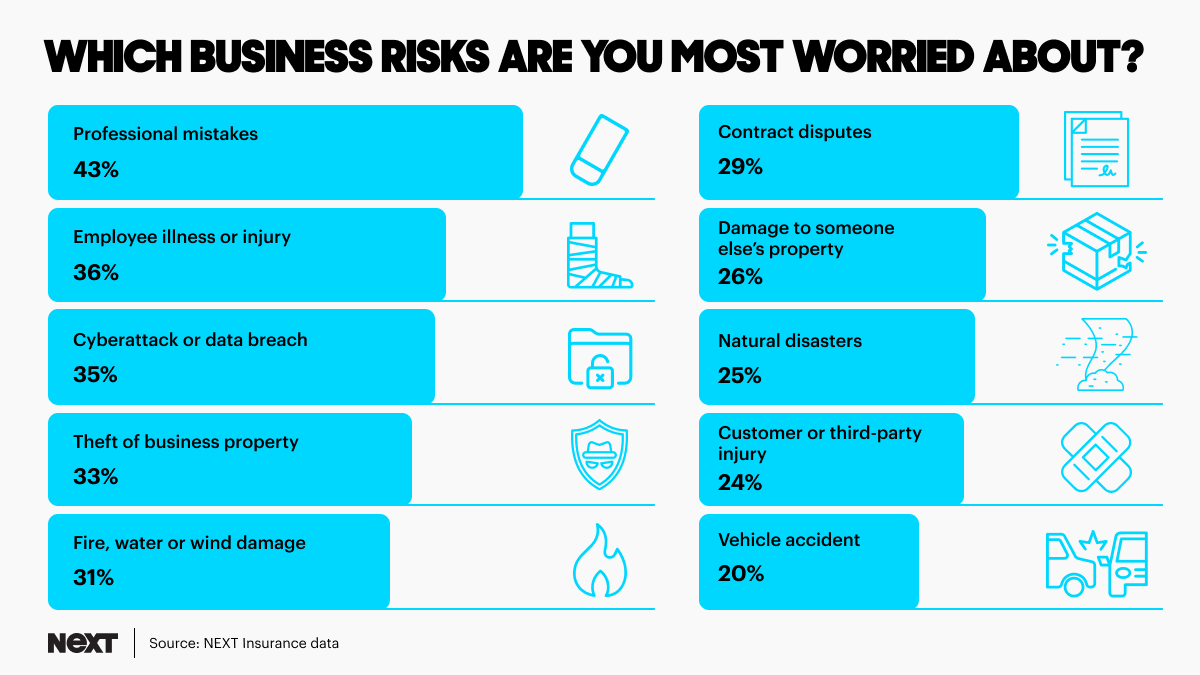
Professional mistakes top the list of business risks
Nearly half of all respondents rank professional mistakes as the top risk they are worried about in 2025. A "professional mistake" is a business or professional error that results in financial harm or damage to a customer.
The other top business risks small businesses worry about are employee illness or injury (36%) and cyber attacks (35%).
Overall, concerns about the most common business risks remained consistent with results from NEXT's 2023 report.
These findings suggest that small businesses are increasingly focused on day-to-day operational risk—the kind that can stem from overwork, understaffing and small oversights with big consequences.
With increasing client expectations and legal exposure on the rise, "getting it wrong" is becoming one of the biggest threats to staying in business. And it's reshaping how entrepreneurs think about risk.
The biggest reason small businesses invest in insurance is to protect against financial loss
It's no surprise that the main reason (32%) why small businesses purchase insurance is for protection against financial loss. After all, that's essentially the definition of small business insurance. But there are other less tangible motivations like just gaining peace of mind from knowing you're covered (21%).
Other top motivators to buy insurance include wanting to protect employees or customers (18%) and to satisfy a legal or regulatory requirement (12%).
Interestingly, only 14% of respondents said they would buy insurance to cover risks specific to their business. This indicates that many small businesses incorrectly see business insurance as one-size-fits-all rather than something that can—and should—be tailored for the unique needs of each industry and business.
For the 86% of small business owners who don't prioritize choosing business insurance tailored for their industry and specific needs, this perception gap could leave them exposed to risks they didn't even know they had—or paying for coverage that doesn't serve them.
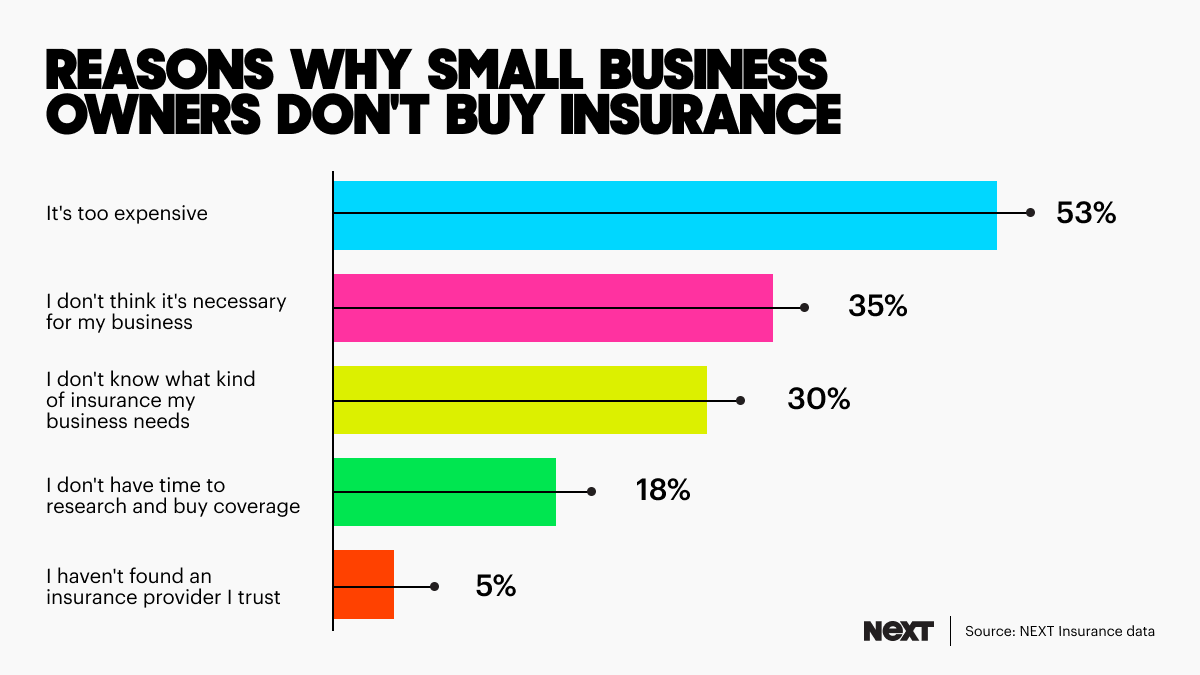
Both cost and confusion prevent small businesses from getting insurance
Even as insurance adoption rises, a small group of business owners continue to opt out largely because they don't understand it or feel they can't afford it.
Among the 8% of small businesses that remain uninsured, cost and confusion are the biggest barriers.
- 53% say insurance is too expensive.
- 35% don't feel insurance is necessary for their business.
- 30% aren't sure what kind of coverage they need.
- 18% feel they don't have time to research and buy coverage.
- 5% say they haven't found an insurance provider they trust.
All of these barriers to coverage hint at areas where insurance providers can do better to support small businesses.
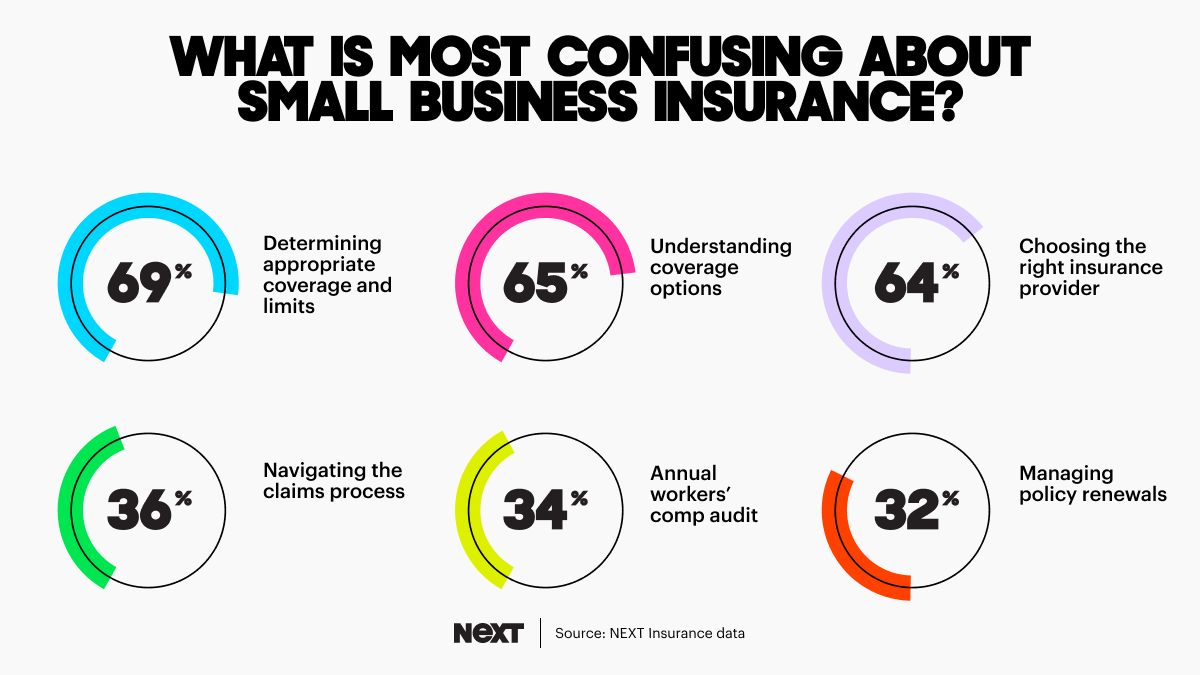
More than 69% of small businesses struggle to understand coverage, limits and policies
Nearly 7 in 10 small business owners say they find insurance confusing. They struggle to understand coverage options, choose the right provider and determine appropriate limits.
Despite having more small business insurance coverage, most owners still feel unsure about what they're actually buying or whether it fits their business needs.
87% of small businesses trust their insurer
While nearly 70% of small business owners don't fully understand their coverage or how it works, 87% trust their insurance company to "have their back" if something goes wrong.
32% of survey respondents strongly agree and 55% somewhat agree that their insurer will be there to support them when needed. Just 13% express doubt about how much they can rely on their insurance providers to support them in a crisis.



